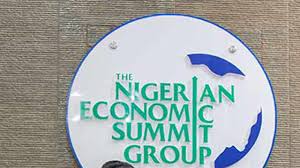NESG backs CBN’s decision to stop price verification on FX transactions
The Nigerian Economic Summit Group (NESG) has backed the recent decision of the Central Bank of Nigeria to discontinue the Price Verification System (PVS) for foreign exchange transactions, saying it will remove regulatory bottlenecks and boost macroeconomic stability. Daily Trust reports that the CBN in a recent circular, stated that beginning from July 01, applications […]

neg
The Nigerian Economic Summit Group (NESG) has backed the recent decision of the Central Bank of Nigeria to discontinue the Price Verification System (PVS) for foreign exchange transactions, saying it will remove regulatory bottlenecks and boost macroeconomic stability.
Daily Trust reports that the CBN in a recent circular, stated that beginning from July 01, applications for Form’ M’ would no longer be needed by importers for validation via the Price Verification Report from the PVS.
The NESG in a communique released on Friday noted that “With a more efficient importation process, the manufacturing sector will benefit from timely access to essential inputs as it will enable higher levels of production and enhance the sector’s contribution to GDP. The increase in industrial output will have a positive spillover effect on other sectors, further stimulating economic activity.”
“In the same vein, the reduction in bureaucratic bottlenecks will make Nigerian businesses more competitive globally. Lower operational costs and improved efficiency will enable businesses to offer more competitive prices, increase market share, and expand their export potential. This will contribute to a favorable balance of trade and strengthen Nigeria’s position in the global economy.
- Only children of elites can access student loan –BUK lecturer
- Insecurity Worse Under Buhari Than Tinubu – Shehu Sani
“Similarly, the policy change aligns with the CBN’s core mandate of maintaining price stability and promoting sustainable economic growth. By reducing the cost of doing business and enhancing supply chain efficiency, the policy is expected to exert downward pressure on production costs, thereby contributing to inflation moderation.
“Moreover, increased economic activity and investment will support higher output growth, reinforcing the stability and resilience of the Nigerian economy,” the NESG added.
